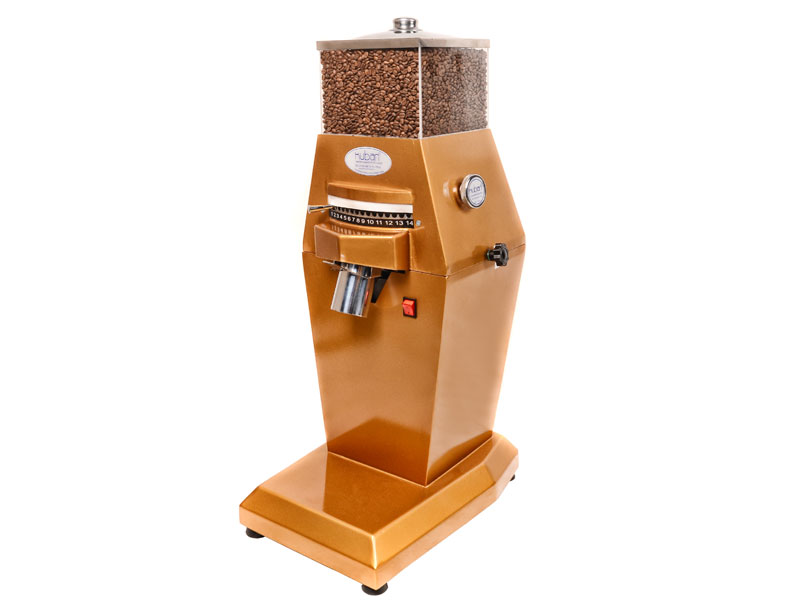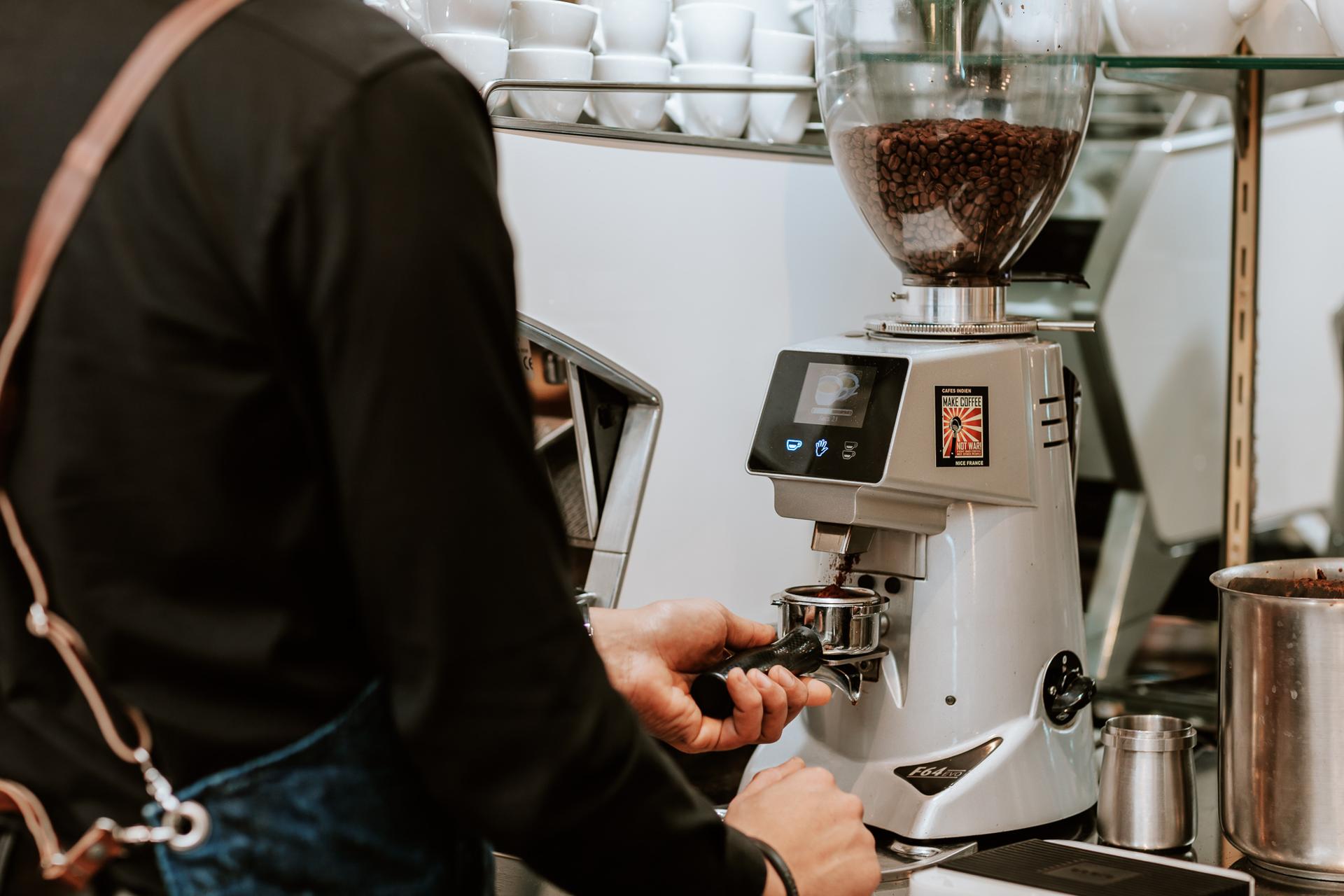How to Pick the Perfect Industrial Coffee Grinder for Your Company
Picking the perfect industrial coffee mill for your business is a multifaceted decision that calls for mindful consideration of numerous vital factors. It is crucial to evaluate your particular grinding demands, consisting of the volume of coffee processed and the desired grind consistency, as these elements directly impact flavor and client complete satisfaction. Additionally, recognizing the numerous sorts of grinders available can substantially influence your operational effectiveness. As you browse these factors to consider, one have to also weigh the implications of budget and upkeep. What various other variables could make or damage your selection?
Assess Your Grinding Demands
When picking an industrial coffee mill, one must first evaluate their grinding needs to make sure optimal efficiency and uniformity. This preliminary evaluation involves understanding the quantity of coffee to be processed daily, in addition to the preferred work dimension for different developing methods. A high-capacity mill might be essential for businesses serving big quantities of coffee, while smaller sized operations might discover an extra compact model sufficient.
Additionally, it is necessary to consider the sorts of coffee beans being utilized, as various beans may require certain grinding strategies to accomplish the finest taste account. Oily beans may require a grinder created to deal with such qualities without overheating or clumping.
An additional critical element is the required grind consistency. Specialized coffee services typically demand specific work sizes to enhance extraction and flavor, making it important to pick a grinder that can supply consistent results. Assessing the offered area and electric demands will certainly help in selecting a mill that fits perfectly right into your functional workflow. By thoroughly evaluating these aspects, organizations can make enlightened choices that align with their coffee grinding demands, eventually leading to a remarkable item and pleased clients.
Understand Mill Types
Comprehending the different sorts of industrial coffee grinders is critical for making a notified selection that satisfies specific functional needs. There are largely two categories of grinders: blade mills and burr grinders.
Blade mills utilize rotating blades to chop the coffee beans, resulting in an inconsistent work dimension - Industrial Coffee Grinder. While they might be much more inexpensive, they are often not ideal for business applications where precision is crucial
On the various other hand, burr mills provide a more consistent work by squashing the beans between 2 surface areas. They can be further categorized into flat burr and conelike burr grinders. Apartment burr mills supply a regular grind size and are generally favored for coffee preparation, while cone-shaped burr grinders are flexible and can handle an array of brew methods, from espresso to French press.
When selecting a mill, think about the particular requirements of your service, consisting of preferred grind consistency, production volume, and the kinds of coffee drinks you intend to offer - Industrial Coffee Grinder. Each mill kind has its benefits and restrictions, so understanding these subtleties enables notified decision-making that aligns with functional objectives
Evaluate Grind Size Uniformity
Attaining grind size consistency is important for producing high-grade coffee, as variants in fragment size can considerably impact extraction and taste. When picking an industrial coffee grinder, it is crucial to review how well the equipment preserves harmony in work dimension throughout various sets. Irregular work sizes can result in irregular removal, leading to a cup that might taste weak or excessively bitter.
To evaluate work size uniformity, think about grinders with functions such as adjustable work setups and top notch burrs. Burr grinders, specifically, master producing uniform particle sizes compared to blade mills. The product and shape of the burrs play a vital function, with stainless steel and ceramic alternatives offering durability and precision.

Think About Manufacturing Ability
In the busy globe of coffee production, taking into consideration production capacity is extremely important for companies aiming to meet demand without giving up quality. The production capability of a commercial coffee grinder directly affects a business's ability to satisfy orders efficiently, handle inventory, and reply to changing market trends.
When examining production capacity, it is vital to evaluate the mill's outcome price, normally gauged in extra pounds per hour. This measurement should align with your business's projected sales quantity and development targets. For circumstances, a coffee shop with a high turn over might call for a mill that can refine numerous hundred extra pounds daily, while a smaller procedure could be adequate with a lower capacity model.
In addition, think about the sort of coffee being processed. Various beans and blends may affect grinding rate and effectiveness, necessitating a grinder efficient in managing varied production demands. It's likewise worth considering the grinder's capacity to preserve consistent quality under high output conditions, as any kind of changes can affect the final item.
Ultimately, choosing a mill that matches your organization's production capacity will ensure you stay affordable and receptive to client expectations.

Budget Plan and Maintenance Aspects
When reviewing the appropriate commercial coffee upkeep, budget plan and grinder factors play here are the findings a considerable duty in the overall decision-making procedure. A preliminary investment in a top notch grinder can yield lasting advantages, yet it's necessary to develop a clear budget that lines up with your company's functional demands. Consider both the acquisition price and prospective operational prices, such as power usage and replacement components.
Maintenance is another critical aspect that can influence your budget plan. Industrial coffee grinders call for regular maintenance to ensure ideal efficiency and durability. Assess the maker's recommendations for upkeep, consisting of cleansing timetables and parts substitute, as these will influence lasting functional costs. In addition, think about the availability of service and assistance, as reliable assistance can mitigate downtime and repair service expenditures.

Buying a mill that is durable yet very easy to keep can conserve cash gradually. While lower-priced alternatives might be tempting, they might sustain greater upkeep expenses and decreased efficiency. Eventually, balancing first costs with lasting maintenance and functional efficiency will certainly guide you to the very best selection for your organization's coffee grinding needs.
Verdict
Choosing the optimal industrial coffee grinder demands an extensive examination of grinding needs, grinder why not try these out kinds, grind dimension uniformity, production ability, and budgetary factors to consider. A well-chosen mill not only boosts the quality of the coffee produced but also contributes to the general success and success of the business.
Specialty coffee businesses often require exact work sizes to boost removal and flavor, making it essential to pick a grinder that can supply uniform outcomes. Apartment burr grinders offer a regular grind dimension and are generally preferred for coffee preparation, while conical burr mills are versatile and can handle a variety of mixture methods, from coffee to French press.
When picking a commercial coffee grinder, it is important to assess just how well the maker keeps harmony in work dimension throughout different batches. Burr mills, in particular, succeed in creating consistent particle dimensions contrasted to blade mills.Picking the ideal commercial coffee grinder requires a detailed analysis of grinding demands, mill types, grind size consistency, manufacturing capability, and financial factors to consider.
Comments on “Industrial Coffee Grinder: Selecting the Best Model for Your Business”